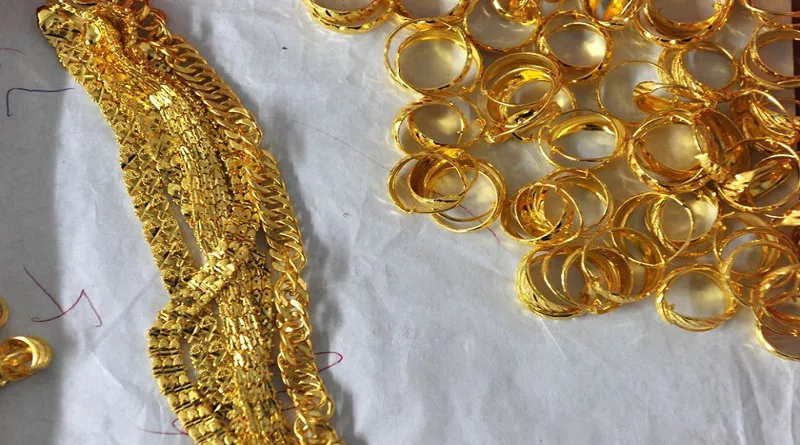Inflation is a persistent economic concern that affects the purchasing power of currencies and investments worldwide. Among various assets, gold has long been considered a hedge against inflation. Investors often turn to gold during times of economic uncertainty or rising inflation rates, believing it can preserve wealth and maintain value. But does gold truly increase in value with inflation? Understanding the relationship between gold and inflation is crucial for investors seeking to protect their assets and diversify their portfolios.
What is Inflation?
Inflation refers to the general increase in prices of goods and services over time, resulting in a decrease in the purchasing power of money. It is typically measured by the Consumer Price Index (CPI) or the Producer Price Index (PPI) in many countries. Inflation can be caused by various factors, including increased demand, supply chain disruptions, rising production costs, or monetary policies that increase the money supply.
Gold as a Hedge Against Inflation
Gold has a reputation as a hedge against inflation for several reasons:
Limited Supply: Unlike fiat currencies that can be printed by governments, the supply of gold is limited. New gold supply is primarily derived from mining, which is a slow and costly process. This scarcity inherently protects gold from inflationary pressures that can devalue paper currencies.
Store of Value: Throughout history, gold has maintained its purchasing power over long periods. Unlike paper money, which can lose value due to inflation, gold’s value tends to hold steady or increase during inflationary periods, making it a reliable store of value.
Global Demand: Gold is a globally recognized asset with demand spread across various sectors, including jewelry, technology, and investment. During economic uncertainty or inflationary periods, demand for gold often increases as investors seek safe-haven assets.
Currency Depreciation: Inflation often leads to depreciation in the value of fiat currencies. As the value of paper money declines, investors may turn to gold as a stable alternative that retains purchasing power over time.
See Also: The Lowest Price of Gold in History: An In-Depth Exploration
Historical Performance of Gold During Inflation
Historically, gold has shown a positive correlation with inflation. During periods of high inflation or economic turmoil, gold prices have tended to rise. For example:
1970s Inflation: In the 1970s, the United States experienced high inflation rates due to various economic factors, including oil price shocks and expansive monetary policies. During this period, gold prices soared, reaching record highs as investors sought refuge from depreciating dollar values.
Post-2008 Financial Crisis: Following the 2008 global financial crisis and subsequent recession, central banks implemented quantitative easing measures to stimulate economies, leading to concerns about inflation. Gold prices responded by climbing steadily, reflecting investor concerns about currency devaluation and economic uncertainty.
2020s Economic Uncertainty: The COVID-19 pandemic and its economic repercussions highlighted gold’s role as a safe-haven asset. As governments worldwide implemented fiscal stimulus packages and central banks pursued accommodative monetary policies, inflation concerns resurfaced. Gold prices surged to new highs as investors sought protection against potential inflationary pressures.
Factors Influencing Gold’s Value During Inflation
Several factors influence how gold responds to inflation:
Interest Rates: Gold tends to perform well when real interest rates (nominal interest rates adjusted for inflation) are low or negative. In such environments, holding non-yielding gold becomes more attractive compared to interest-bearing assets.
Market Sentiment: Investor sentiment plays a significant role in gold’s price movements. During periods of economic uncertainty or inflationary pressures, heightened investor demand for gold can drive prices up, regardless of short-term fluctuations.
Currency Movements: Changes in currency values, especially depreciation of major fiat currencies, can bolster gold prices as investors seek stability and wealth preservation.
Challenges to Gold’s Performance in Inflationary Environments
While gold is widely regarded as an inflation hedge, it is not immune to market dynamics and specific challenges:
Volatility: Like any commodity, gold prices can be volatile, influenced by speculative trading, geopolitical events, or sudden shifts in investor sentiment.
Short-Term Fluctuations: Inflationary expectations can lead to short-term price movements in gold that may not always align with longer-term inflation trends.
Alternative Investments: During periods of low inflation or stable economic conditions, alternative investments such as stocks or bonds may outperform gold, depending on market conditions and investor preferences.
Conclusion
Gold’s status as a hedge against inflation is rooted in its historical role as a store of value and global demand. While past performance suggests that gold tends to appreciate during inflationary periods, investors should consider the broader economic context, market dynamics, and their own investment goals when allocating assets. Whether as a portfolio diversifier, a hedge against inflation, or a safe-haven asset during economic uncertainty, gold continues to play a significant role in modern investment strategies. Understanding the relationship between gold and inflation provides investors with valuable insights into navigating financial markets and protecting their wealth over the long term.
You Might Be Interested In
- Understanding Spot Price: What It Means When Buying Gold?
- How Is the Value of Gold Determined? A Comprehensive Guide
- 10k Gold: What Percent of Pure Gold Does It Contain?


